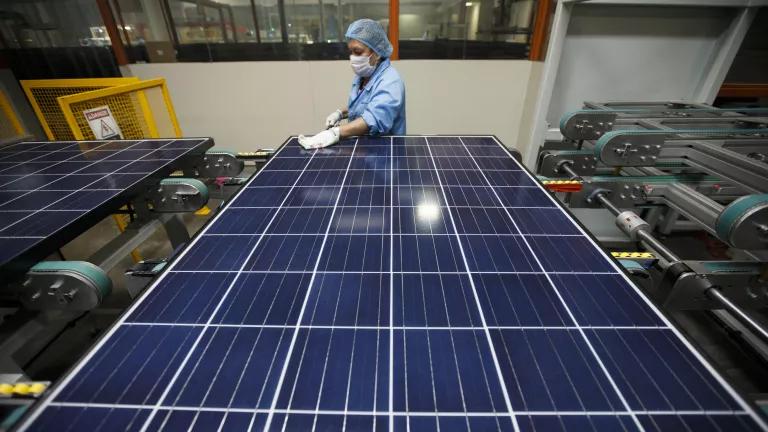Most Americans (not to mention their political candidates) forget how much utilities matter as stewards of our most essential infrastructure -- until the power goes out for an extended period. For millions in the Northeast Hurricane Sandy, which caused the most widespread weather-related electricity outages in U.S. history, was a harsh reminder.
With the typical household electricity bill averaging only about $3 a day, it’s easy to understand how people have come to take for granted the reliable electrical service that powers their homes, businesses and lives. I remember once trying to interest a distinguished economics professor in the intricacies of the electricity business by saying, “Remember that these are the people who keep the lights on.”
His response: “The lights have been on for a hundred years.”
Unfortunately, Hurricane Sandy is another sobering reminder that this is not a guarantee. Severe weather influenced by climate change is wreaking unprecedented havoc, including on our utility systems.
New Englanders, for example, remember a catastrophic October snowstorm just over a year ago that plunged many into darkness for 10 days or more. Much larger numbers suffered severe inconvenience, or much worse, from Sandy.
After three decades of working with utilities, I offer these observations following this latest historic storm:
- I am struck again by how quickly utilities from other states rush to help their colleagues. Power is being restored in New York and New Jersey with help from utility crews from Texas and California (and literally dozens of other states). This is a longstanding tradition of which the industry is rightly proud, and without it recovery from catastrophes would take much longer. (Here’s a video of jubilant New Yorkers after power was restored to the Lower East Side on Saturday.)
- Reliable electricity service is vital to environmental quality. Extended outages jeopardize human health, water and air quality in too many ways to count (but you could start with extended exposures of large populations to severe cold and heat, food contamination, and degraded water quality as treatment plants shut down). Some utility managers and regulators think that environmental advocates are somehow opposed to making and using electricity, but I always emphasize that we are strong advocates for reliable electricity services, even as we continually look for ways to get more work out of less electricity.
- Some commentators have suggested that one lesson of Hurricane Sandy is that everybody should have a gasoline-powered generator. This is crazy on cost, safety and reliability grounds; it makes far more sense to continue upgrading our power grids, dispersing and diversifying our power generation, and improving the insulating strength of our buildings' walls and windows (which keeps those inside much more comfortable when the power is off). We want more small-scale power plants, but we want them in the form of grid-connected renewable resources, not swarms of household gas guzzlers that pump pollution straight into neighborhoods. As I recently noted, the right kind of “smart grid” planning can help; this means systems that ensure precise information from utility grid sensors and meters in order to pinpoint outages quickly is credited with speeding up Vermont’s power recovery from Hurricane Irene last year, and it will be important to determine whether and to what extent similar investments by other Northeast power companies contributed to the recovery post-Sandy.
- Finally, and most important, Sandy's devastation reinforces the importance of continuing to reduce global warming pollution from fossil fuel use; electric and natural gas utilities account for more than half of it in the United States, and need to redouble their efforts to cut emissions (which have been on a very welcome downward trend in this country for the past five years, thanks in good part to those same utilities' investments in energy efficiency and renewable energy). Sandy reminds us of the folly of conducting giant unintended experiments with the earth's climate by continuing to raise atmospheric concentrations of carbon dioxide through unnecessary fossil fuel use.
As we’ve seen, those unintended experiments can produce never-anticipated consequences and lessons. There’s no question that we need to strengthen, improve and modernize our transmission system in the United States to make it more supportive of efficiency and renewable energy – and stronger and more resilient in the face of assaults like Sandy’s. That means that regulators will need to approve additional utility investment to do just that, and they deserve support from everyone who likes having their lights on, or at least available.
We also must remember and honor extraordinary responses to devastation that left at least eight million buildings (and many more people) in the dark. There is much yet to fix, but the outages would have been still more extended and widespread without utilities’ advance planning and the host of utility workers who immediately began the job of restoration, under the most challenging conditions.
We shouldn’t take any of that for granted, either.


